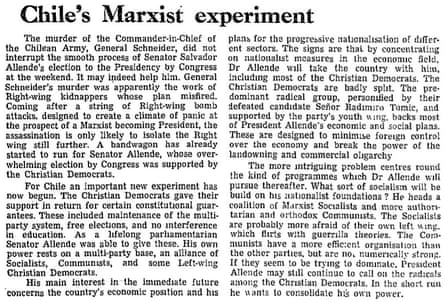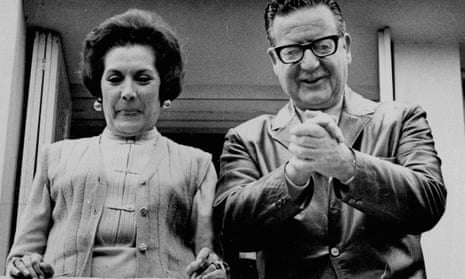Santiago, November 3
The people of Santiago took to the streets today to cheer their new president, Salvador Allende, when he appeared on the balcony of the Presidential Palace after his inauguration.
Crowds surged round as he drove to the palace from the Congress building and the cathedral where he had taken part in an ecumenical Te Deum. Congress itself was overflowing with foreign dignitaries as the outgoing President Frei handed over the tricolour sash of office to Allende in a ceremony which ended with the solemn swearing in.
This evening a carnival was due to take place throughout the city centre. No previous inauguration in the country’s history has had anything to rival it. In Alameda city’s main boulevard, Chile’s main poets, artists, actors, and musicians were to give recitals on pavement stages.
In an interview published today the Conservative paper El Mercurio, President Allende spoke in the strongest terms of the recent assassination of the commander in chief, General Rene Schneider, by right-wing terrorists. A climate of terror had been created, he said. If reactionary violence broke out, it would have to be answered with revolutionary violence.
“I do not believe in civil war,” he said, “but I do not discount it either. If they close the way for Chile to go forward, there will be no alternative but armed insurgence.”
He promised that a plebiscite would be held if Congress rejected the new developments which his multiparty coalition would propose, but he rejected any close comparison with Cuba. Cuba had never had democracy, he said, whereas Chile was one of the most democratic countries in Latin America.
A retired general, Roberto Viaux, leader of the army pay mutiny in October 1969, was bound over to a court-martial today on formal charges of participating in the murder of General Schneider. He was also accused of having incited subversion or the overthrow of the legally constituted government.

See also:
Allende’s widow leads war on junta
5 November 1973

Comments (…)
Sign in or create your Guardian account to join the discussion